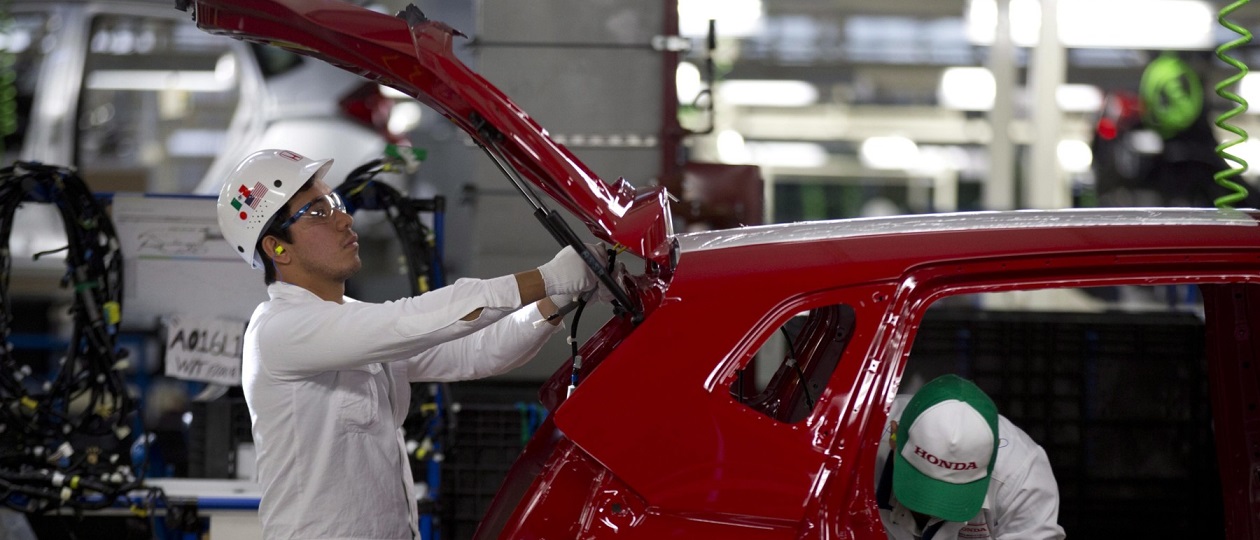
The new North American free trade agreement that goes into effect Wednesday, July 1, 2020 was touted by U.S. President Donald Trump as an engine of American job creation. But Japan’s automakers are largely opting instead to keep operations in place and pay Mexican workers more or even just pay tariffs.
The US-Mexico-Canada Agreement requires 40% or more of parts for each passenger vehicle be manufactured by workers who are paid at least $16 per hour as a condition to make them tariff free in the region. Trump hailed that feature as a way to boost production in the U.S., which has a higher hourly rate than Mexico.
However, this looks to be wishful thinking. The ratio of US-Canada parts among Mexican-assembled vehicles sold in the U.S. was 13.5% in 2018, according to the U.S. Department of Transportation Highway Traffic Safety Administration. Trump’s theory was that U.S. production would inevitably increase to meet the 40% requirement, but Japanese automakers, which had already positioned their production bases according to the old NAFTA regime, are not simply willing to pull up stakes and redeploy.
One reason is the cost of moving production. Honda Motor-affiliated parts maker Keihin will raise the hourly wage of employees at a factory in Mexico to $16 by next month — triple the average rate of a parts factory in Mexico, but still cheaper than making a move. Because the pandemic has hurt earnings, the cost of the moving production will likely be too burdensome over the foreseeable future.
Auto component maker Piolax, will also raise the hourly wage at its Mexican plant to $16 within the year. The company is also installing robots to mitigate rising labor costs, President Yukihiko Shimazu (島津幸彦) said.
Toyota Motor, which built a new plant in Mexico in 2015, is not finding it easy to change plans either. The new plant started full-scale production of pickup trucks in February. The trucks are popular in the U.S. and would be subject to a 25% tariff if they do not meet the content requirements of the USMCA. But if Toyota does not operate the factory, it cannot recover its investment.





